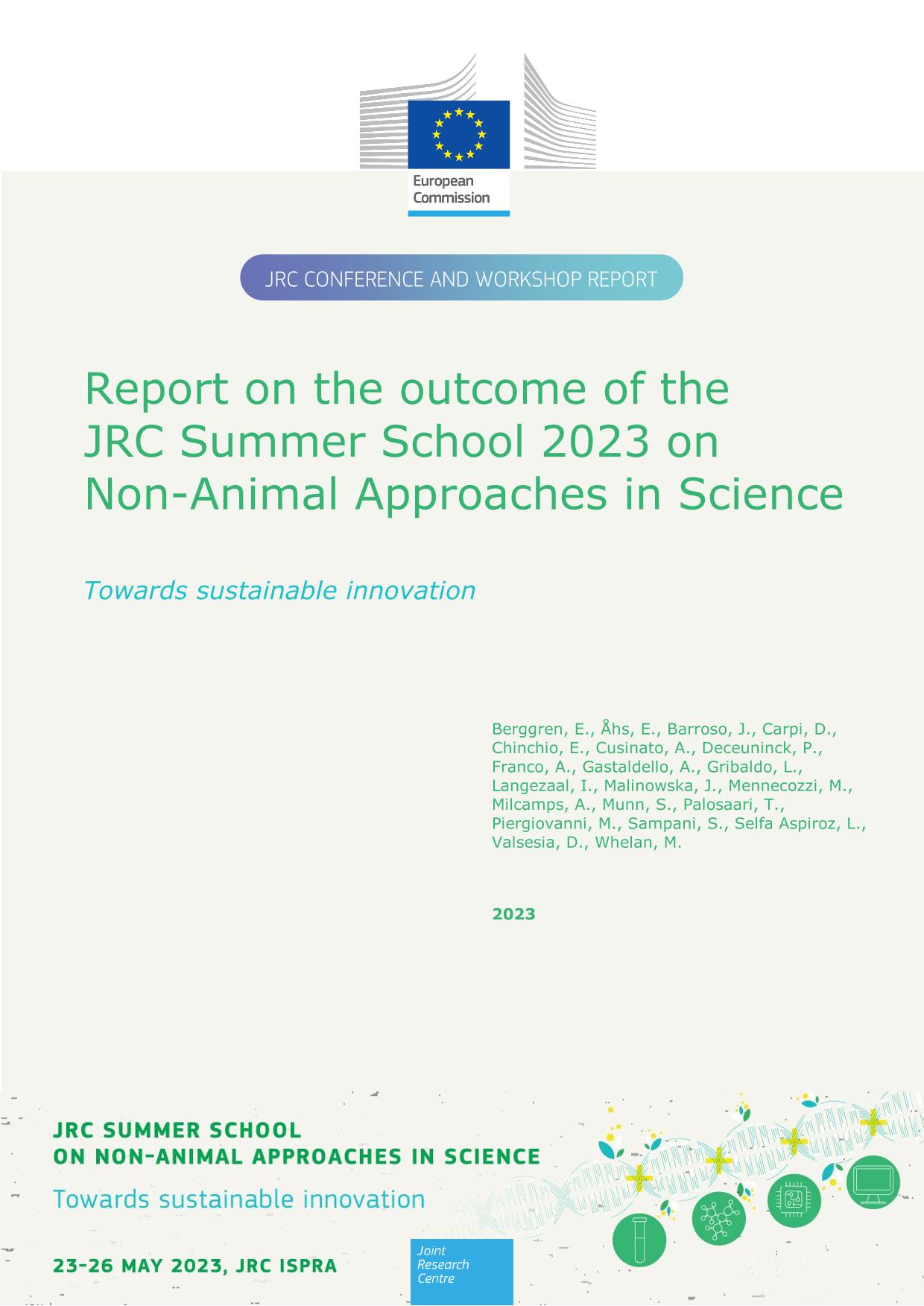The JRC is pleased to announce the fourth edition of its Summer School on Non-animal Approaches in Science: Towards Sustainable Innovation organised by the European Commission's Joint Research Centre and its EU Reference Laboratory for Alternatives to Animal Testing (EURL ECVAM).
The application process is now closed.
- consumer protection | animal welfare | health risk | innovation | medical research | biotechnology | applied sciences
- Tuesday 23 May 2023, 10:00 - Friday 26 May 2023, 13:00 (CEST)
- Ispra, Italy
Programme
- 23 May 2023, 10:00 - 26 May 2023, 13:00 (CEST)JRC Summer School on Non-animal Approaches in Science 2023
Practical information
- When
- Tuesday 23 May 2023, 10:00 - Friday 26 May 2023, 13:00 (CEST)
- Where
- Joint Research CentreVia E. Fermi, 2749, 21027 Ispra VA, Italy
- Who should attend
- Students and young scientists with interest in non-animal approaches
- Languages
- English
Description
Why this Summer School?
Non-animal approaches not only address the ethical aspects of using animals in science, but also offer huge advantages for conducting human relevant research and testing, whether it be for studying disease mechanisms, developing new therapies or ensuring the safe and sustainable use of chemicals.
Cutting-edge technologies including induced pluripotent stem cells, organ-on-chip, computational modelling and artificial intelligence are being exploited for world class science that benefits our society and supports sustainable development and innovation.
The JRC Summer School provides you with a unique opportunity to learn from experts in the field, share knowledge and experience with your peers, and build your professional network, all while having fun too!
What's on offer for you?
Three and a half days of a highly engaging and interactive programme including lectures by experts in several key fields, round tables for discussion on hot topics, and a debate session powered by you! There’ll also be plenty of opportunity to mingle and meet new people with interests like yours.
The scientific programme will focus on complex in vitro methods and computational modelling used in biomedical research and regulatory applications. You’ll see how results obtained from advanced non-animal models and methods can be applied in human medicine and toxicology testing.
We’ll also dedicate time to explore career development paths and the amazing opportunities that non-animal science can offer.
Recognising the knowledge and expertise you already have, we’d like you to present a poster describing your own project or area of study related to the topics of the Summer School.
The official language of the Summer School will be English.
Who can participate?
We are looking for enthusiastic students or early-career scientists (max. 4 years after masters or PhD) with a strong interest in non-animal approaches working in relevant fields of research and application.
The maximum number of participants will be 120.
We expect a continuous presence from all participants to receive a certificate of attendance.
Your presence during the whole summer school without interruption is not only important for the outcome of the event, but also for making the travel sustainable.
How to apply?
The application processis now closed.
Applications should have been submitted by 17 January 2023.
How will we select participants?
Participants will be selected based on the following criteria:
- Quality of the poster abstract
- Clarity and relevance of the motivation to attend
- Priority will be given to applicants who did not attend the previous editions (2017, 2019 and 2021) of the JRC Summer School
Decisions on acceptance will be announced by email on 14 February 2023.
Costs and logistics
Participation in the JRC Summer School is free of charge. However, participants will need to cover the costs of their travel and accommodation.
The JRC will provide practical assistance in booking reasonably-priced accommodation in the local area and will arrange free local shuttle transportation according to a fixed timetable.
We encourage you to think about the climate impact when planning your travel. Aviation is one of the fastest-growing sources of greenhouse gas emissions. You can reduce your emissions by booking the most direct route and where possible consider travelling by train instead.
The JRC is dedicated to reducing its impact on the environment and will arrange the Summer School in a green spirit. We will endeavour to keep food waste, single-use plastics and printing on paper to a minimum. We will offer a green local menu throughout the event.
Travel grants
We thank the following organisations for offering a number of travel grants. Details on how to apply will be sent to accepted participants.
- Eurogroup for Animals
- European consensus-platform for alternatives ECOPA
- European Organ-on-Chip Society EUROoCS
- European Society of Toxicology In Vitro ESTIV
- PETA Science Consortium International
- Physicians Committee for Responsible Medicine
- Royal Society for the Prevention of Cruelty to Animals RSPCA

Contacts
General contact
JRC SUMMER SCHOOL
- Name
- JRC SUMMER SCHOOL
- Website
- https://joint-research-centre.ec.europa.eu/eu-reference-laboratory-alternatives…
